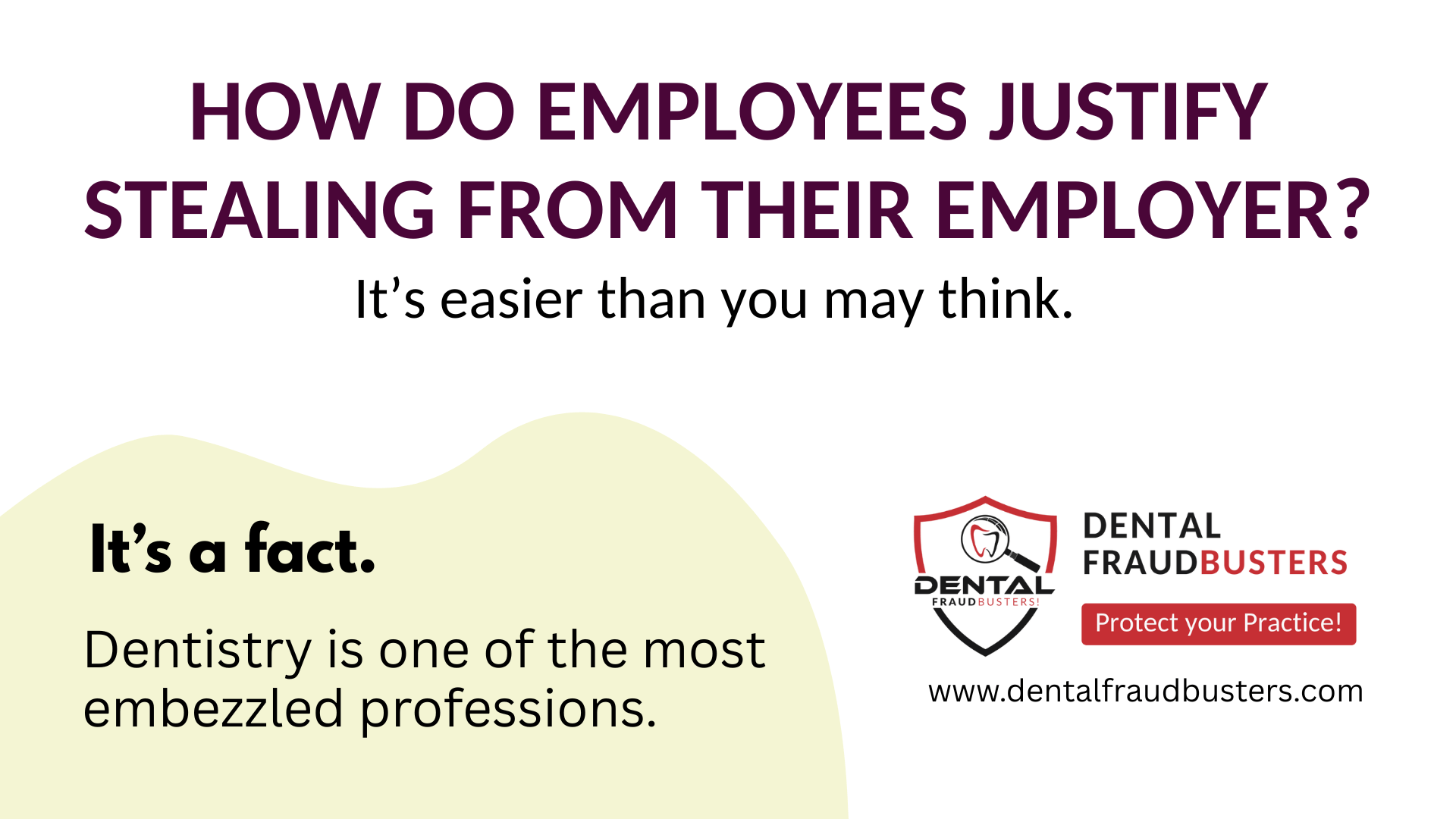Techniques of Neutralization
Have you ever wondered how dental employees justify stealing?
Embezzlement by a trusted employee is not just a financial crime—it’s a personal betrayal.
Victims of embezzlement by a trusted employee often experience a deep sense of betrayal, confusion, and self-doubt.
- Shock and disbelief: “I can’t believe they did this.”
- Anger and resentment: “How could they betray me like this?”
- Shame or embarrassment: “How did I not see it?”
- Grief: Mourning the loss of trust and the relationship.
- Anxiety and fear: Worrying about the future, reputation, or recurrence.
These are normal reactions and victims should allow themselves to feel them without judgment.
On the other hand….
Embezzlers think differently.
Embezzlers often justify their crimes using psychological strategies known as techniques of neutralization—a concept from criminology that explains how individuals rationalize unethical or illegal behavior to reduce feelings of guilt or shame. These techniques help offenders maintain a positive self-image while engaging in wrongdoing.
Here are the five classic techniques of neutralization, originally proposed by Sykes and Matza (1957), and how they apply to embezzlement:
1. Denial of Responsibility
“It wasn’t really my fault.”
Embezzlers may claim they were pressured by circumstances, poor management, or financial hardship. They might say they had no choice or were just following orders.
Example:
“I didn’t mean to do it, but I was under so much pressure to meet financial targets.”
2. Denial of Injury
“No one got hurt.”
They may argue that the dentist is wealthy and won’t miss the money, or that they intended to pay it back.
Example:
“It’s not like anyone was harmed. The dentist makes tons of money.”
3. Denial of the Victim
“They deserved it.”
The offender may blame the victim, suggesting they were mistreated, underpaid, or disrespected by the organization.
Example:
“After everything they put me through, I deserved some compensation.”
4. Condemnation of the Condemners
“Everyone else is corrupt.”
They shift focus to the hypocrisy or wrongdoing of others.
Example:
“My coworkers steal more than I ever did. Why should I be the only one punished?”
5. Appeal to Higher Loyalties
“I did it for someone else.”
They justify their actions as being in service of a greater good, like helping family or friends.
Example:
“My family was in trouble. I had to do something to help them.”
These rationalizations don’t excuse the behavior, but they help explain how individuals reconcile their actions with their moral beliefs. In forensic interviews and fraud investigations, understanding these justifications can be key to uncovering motives and patterns.
I made a short short video on this subject.
If you have questions, or need help, do not hesitate contact me for assistance.


